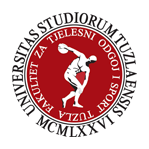DIFFERENCES IN THE SOMATIC CHARACTERISTICS OF THE SUCCESSFUL AND LESS SUCCESSFUL GROUPS OF BASKETBALL PLAYERS OF CADET AGE
DOI:
https://doi.org/10.51558/1840-4561.2024.21.1.39Keywords:
Multivariate analysis (Manova), cadets, basketball, somatic characteristicsAbstract
The research is based on a sample of 132 cadet basketball players (69 successful cadets and 63 less successful cadets) from 12 participating clubs of the Sarajevo Canton cadet basketball league. The main goal of the research was to determine the structure of the somatic characteristics of young cadet basketball players using a cross-section. The total sample of basketball players divided into two groups of cadet basketball players, divided according to quality, statistically significantly differ in the analyzed somatic parameters. The group of better quality basketball players has better values in all analyzed somatic characteristics. The sample of variables in this research consisted of a set of 14 measuring instruments used to assess the somatic characteristics of young basketball players. After determining, i.e. adjusting the data values to characteristics that are suitable and valid for the use of designed analyzes and providing exact answers to the defined hypotheses, the following procedures were used for data processing and analysis in this paper: - multivariate analysis of variance (Manova) to determine the differences between groups of successful and less successful basketball players by somatic characteristics; - univariate F tests to determine significance for classifying respondents into groups based on the level of their basketball performance. The results of this research can be useful to coaches for better programming of the training process in working with young basketball players, as well as a good basis for scientists for future research on populations of young basketball players.
Downloads
Downloads
Published
How to Cite
Issue
Section
License

This work is licensed under a Creative Commons Attribution-NonCommercial-NoDerivatives 4.0 International License.






